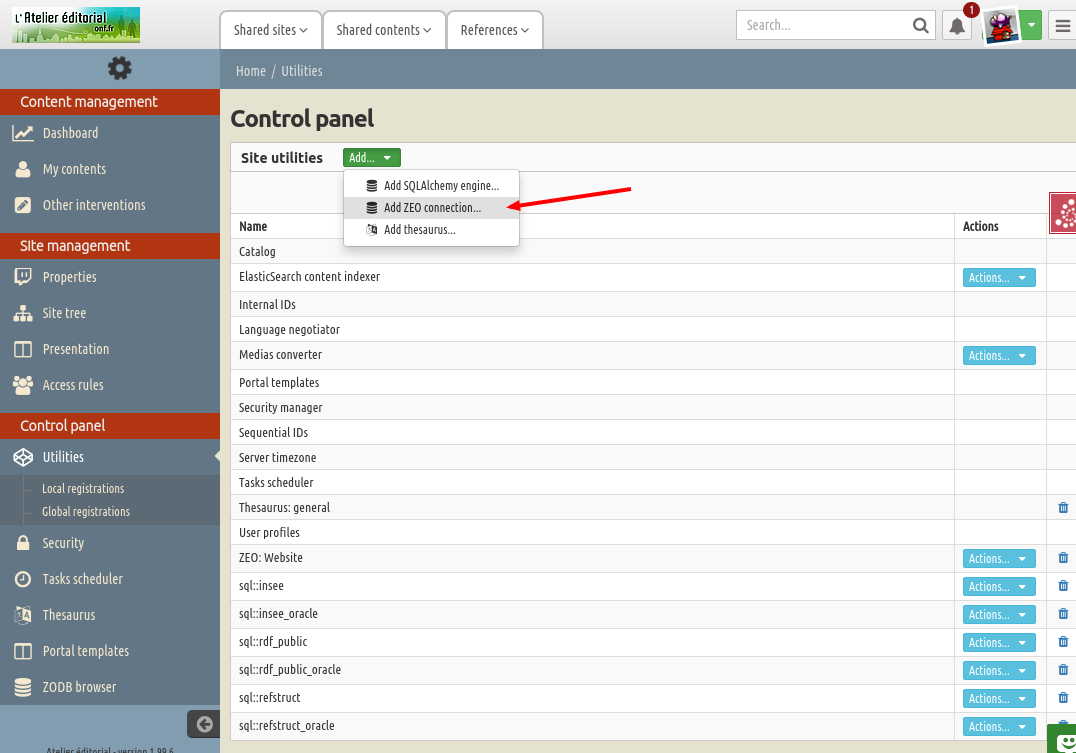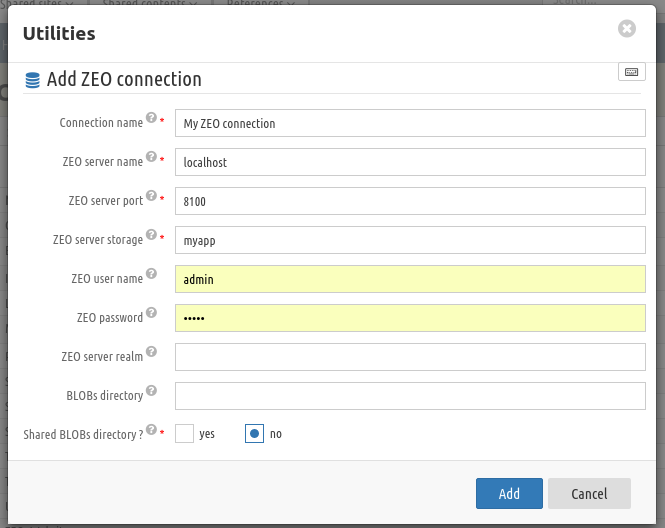Site Manager guide¶
PyAMS admin site (called also ZMI, in memory of old Zope Management Interface) is based on the ZODB.
When the PyAMS is initialized, it create and register several utilities into the local registry and saved into ZODB. These utilities are created with default values which can be modified through management interface when the application is started by default (http://localhost:6543/admin).
Local registry utilities¶
One of PyAMS pre-requisites is to use the ZODB, at least to store the site root application, it’s configuration and a set of local utilities.
Some important utilities include:
- Catalog:
- The catalog has the responsibility to index every content properties which are required to make quick and efficient searches. Catalog indexes are automatically created on database upgrade; management interface allows administrator to get indexes properties, to get the number of indexed objects and values for a given index, and to delete an index before recreating it by running the database upgrade script another time (see Command line scripts).
- Internal IDs utility:
- The catalog object doesn’t store direct references to objects, but their internal IDs which are generated by this utility.
- Language negotiator:
As a web site or application can be localized, this utility allows you to define priorities between language definition options (between user session, browser end server), and to define which languages are available to your users (which is particularly important when managing potentially multi-lingual contents).
Tip
Static texts like those displayed into PyAMS management interface are always translated to the language defined into browser language, if available.
- Portal templates container:
- Portal templates are used to define presentation templates based on portlets (see pyams_portal package ⊞). You can create local templates, or create shared templates into this utility which can then be reused into several places in your web site.
- Security manager:
- This utility is used to define authentication sources which will be available to authenticate your users. pyams_security package ⊞ package provides several authentication modules (like local users, or via OAuth/OAuth2 providers); pyams_ldap package ⊞ add authentication plug-in via an LDAP directory.
- Sequential IDs utility:
- This utility is used to assign simple sequential IDs to site contents (like sites, news, topics and more); these IDs are simple to identify a given content; several versions of a given content handle by workflow share the same sequential ID.
- Server timezone utility:
- Define the timezone server to display date and time accordingly.
- User profiles container:
- This utility is used to store information associated to principals through their user profile.
Optional utilities can also include:
Elasticearch content indexer:
Verifier la connection entre le server ElasticSearch et la l’application PyAMS
Maps manager: Systeme de cartografie, avec OpenStreeMaps, WMS, GeoPortable, ESRI ou encore Google Maps permet de créer des zones catographique²
Medias converter:
Tasks scheduler:
After install…¶
Settings administrator’s password¶
Setting server timezone¶
Setting site’s language¶
Creating ZEO connection¶
Several PyAMS utilities (like the tasks scheduler or the medias converter) are working with dedicated processes, are connected to main PyAMS process through ØMQ, and use ZEO connections for their PyAMS database access.
Clients of these processes have to send settings of the ZEO connections that they should use.
The ZEOConnection utility can be created by the site manager through the web management interface (ZMI) from the Control panel:

ZEO connection creation form allows you to define all settings of a ZEO connection:
